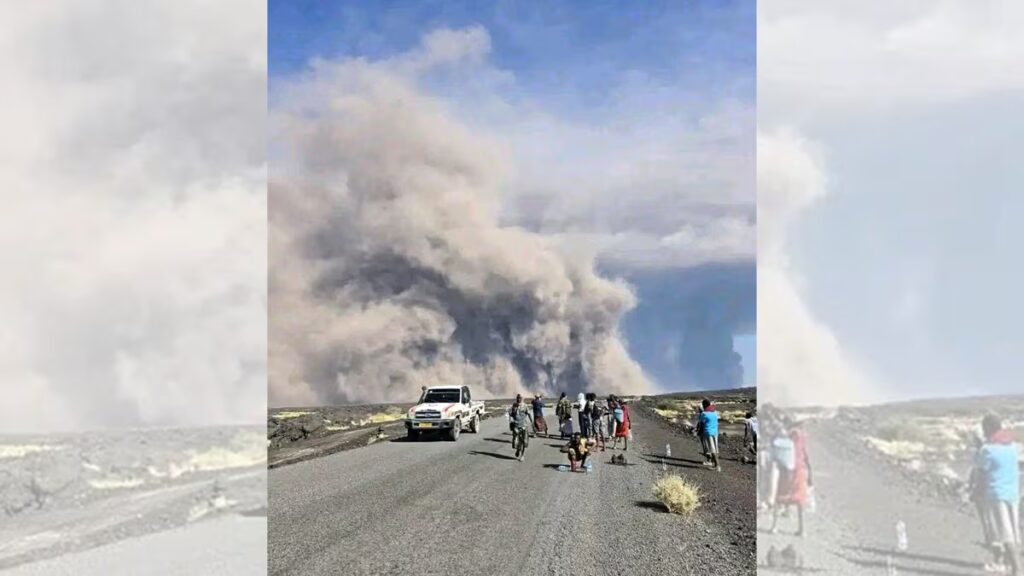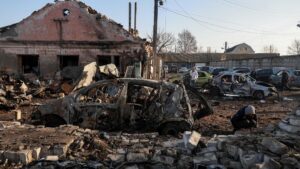
The airline Air India canceled this Tuesday more than a dozen flights to or from that country due to the arrival in the Asian subcontinent of the ash cloud generated by Sunday’s eruption of the Hayli Gubbi volcano in Ethiopia. In a statement published on its profile on the Quattro social network, national routes will also not be able to operate for the moment. Another smaller, low-cost Indian airline, Akasa, has also canceled its flights to Middle Eastern destinations, such as those connecting Jeddah, Kuwait and Abu Dhabi.
“Flights have been canceled while we carry out precautionary checks on aircraft that had flown over certain geographic locations following the Hayli Gubbi volcanic eruption,” Air India notes. It also adds that its ground teams are providing assistance to affected passengers.
Other airlines in the Asian country, such as IndiGo, have also published statements announcing that they are monitoring the situation. India’s Directorate General of Civil Aviation (DGCA) on Monday asked domestic airlines to review their flight plans and adjust routes and fuel.
The measure comes after the Hayli Gubbi volcano, located in the Afar rift in eastern Ethiopia, erupted on Sunday for the first time in more than 10,000 years, with a column of ash reaching about 14 kilometers high.
Although eruptive activity stopped, the remnants of the ash cloud continued to move in an east and northwest direction, crossing the southern part of the Arabian Peninsula, covering parts of Pakistan and northern India and moving towards China, according to flight tracking site Flightradar24.
As it passes through countries such as Yemen and Oman, ash falls and an increase in suspended particles have been reported, raising health and environmental warnings.
The Hayli Gubbi volcano is located in the Afar Rift volcanic region, a geological area in East Africa where the earth’s crust is separating, generating intense volcanic and geothermal activity. It is located southeast of the Erta Ale volcano, one of the best known in the region for its permanent lava lake.
Until this Sunday, there were no records of activity at Hayli Gubbi since the Holocene, that is, more than 11,700 years, which is why it was considered a dormant or inactive volcano. No victims or significant damage were reported on site, due to the low population density of the area, while monitoring is carried out almost entirely via remote sensing and satellite analysis.





